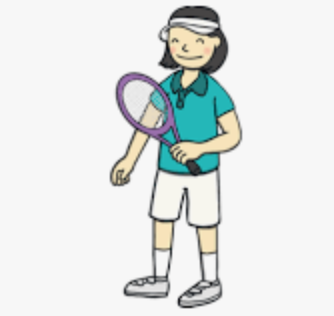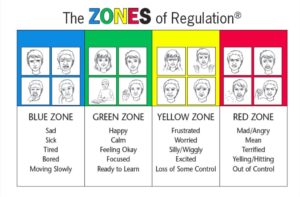Week Beginning 16th November 2020
[dropshadowbox align=”none” effect=”lifted-both” width=”auto” height=”” background_color=”#edbaba” border_width=”1″ border_color=”#ba27d8″ ]Homework is set on Google Classroom[/dropshadowbox]
Howard-parents-guide-to-Google-Classroom-
Monday 16th November
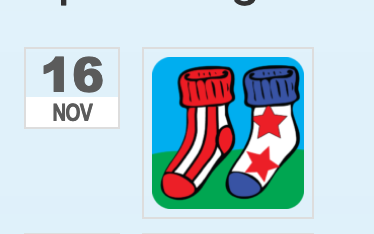
Odd Socks Day
Children can wear odd socks to school today in support of anti-bullying week.
English
At Howard Primary School we have adopted The Power of Reading scheme for literacy. Our literacy work is based around a core text. The text we are working on is called Rapunzel by Bethan Woollvin.
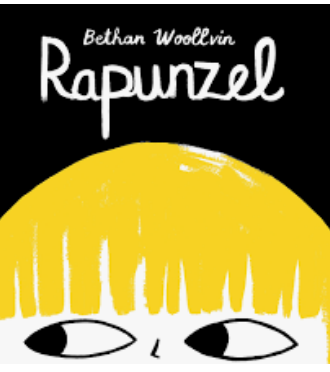
Other books by Bethan Woollvin include:
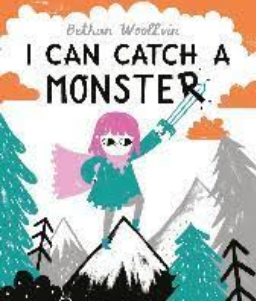
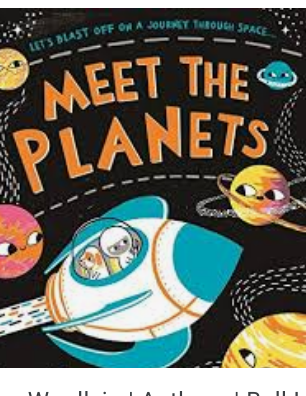
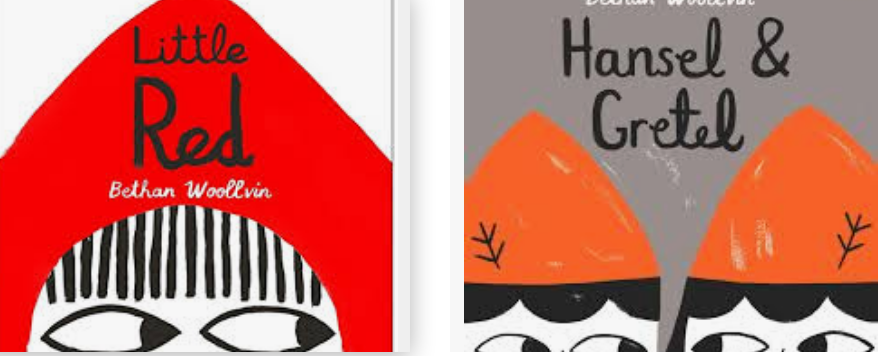
This week we will:
- response to illustrations & consider the role of a character
- ask Rapunzel questions to find out more about her thoughts, feelings and worries.
- write a shared write
- write in role (diary writing)
Response to illustrations & consider the role of a character
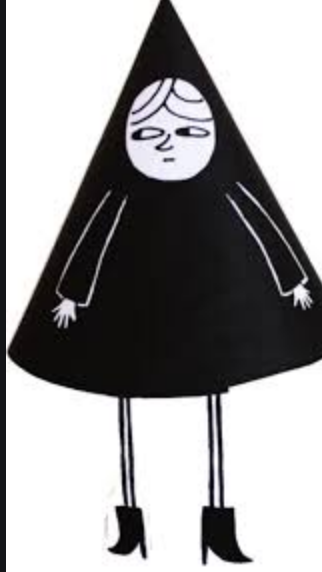 We will explore the character of the witch in more detail.
We will explore the character of the witch in more detail.
Ask Rapunzel questions to find out more about her thoughts, feelings and worries.
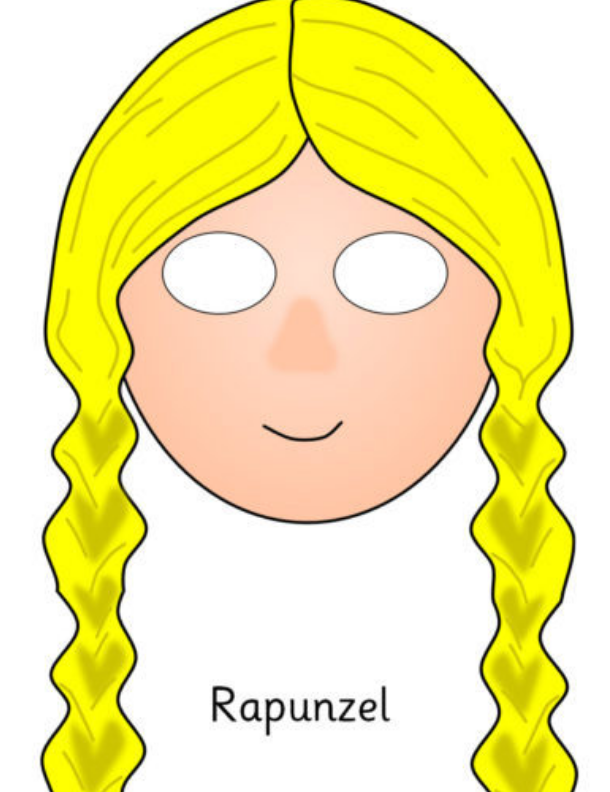
The teacher will play the role of Rapunzel, and the children will ask Rapunzel questions. They will ask meaningful questions that will help us find out more information about Rapunzel’s feelings, thoughts and worries. We will then think about questions that allow us to gather a lot of information and questions that will not provide us with a lot of useful information.
Write a shared write
We will look at examples of diaries and study the features of diaries.
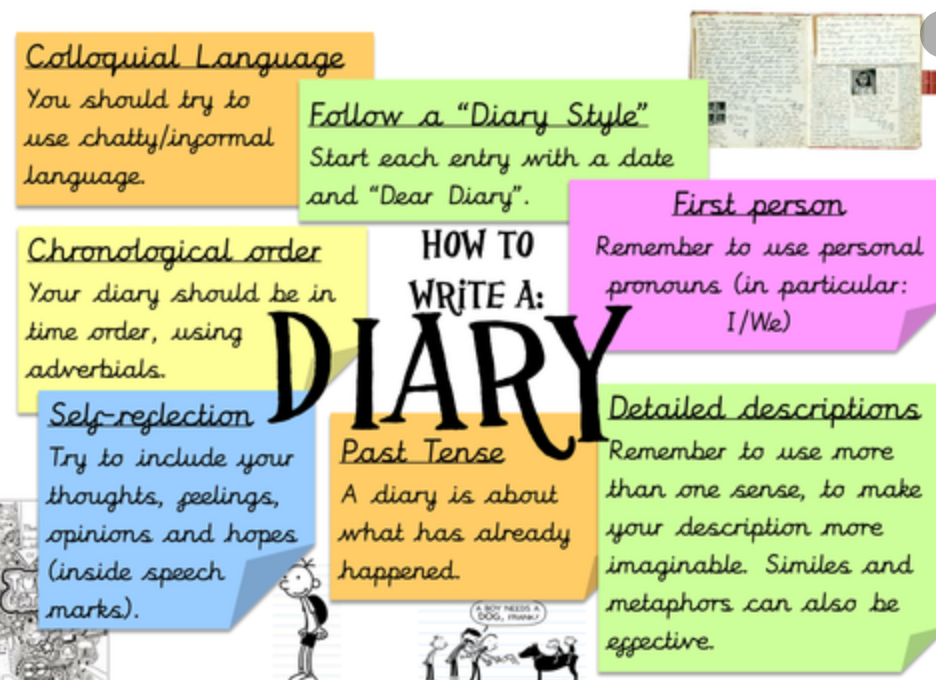
As a class we will then write a shared diary in the role of Rapunzel detailing our feelings about our everyday life.
Write in role (diary writing)
We will now be Rapunzel and plan a diary. We will use our knowledge of the story so far and we will use elements from our shared write from Thursday to help us.
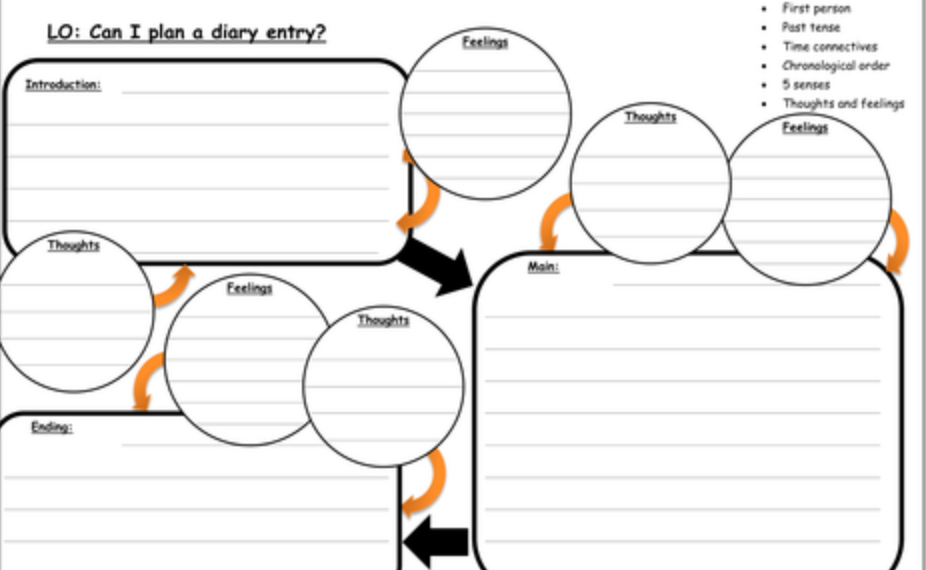
Maths
-
-
-
- Subtract two 2-digit numbers (not crossing tens) expanded method
- Subtract two 2-digit numbers (crossing tens) number line
- Subtract two 2-digit numbers (crossing tens) place value chart
- Number bonds to 100
- Add 3 1-digit numbers
-
-
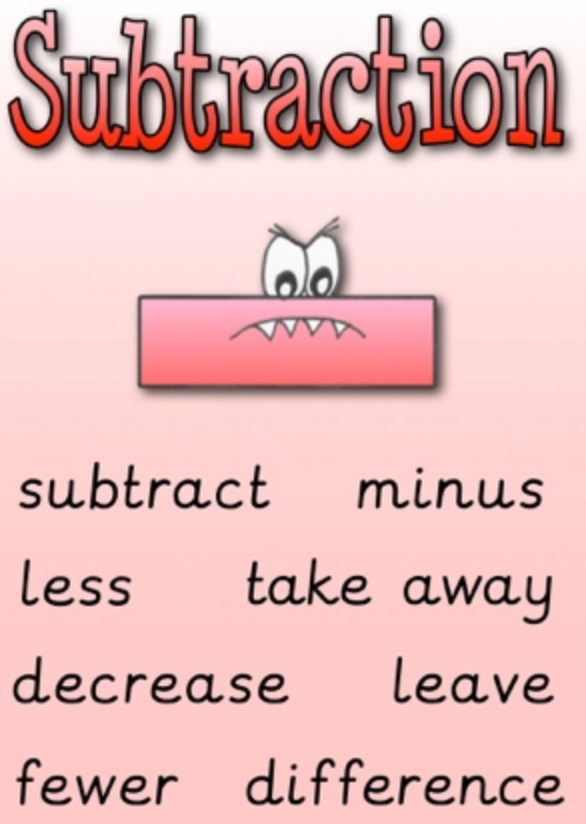
- Subtract two 2-digit numbers (not crossing tens) expanded method
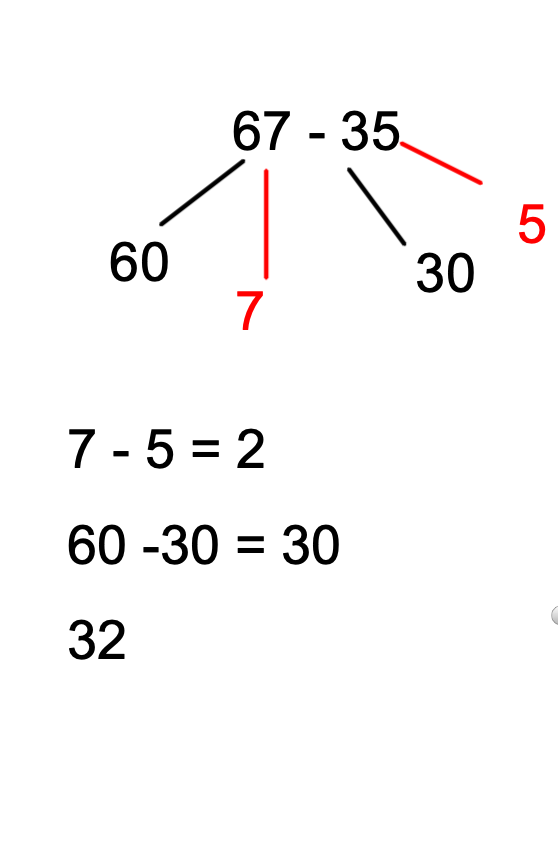 Children will partition the numbers into tens and ones. They will subtract the tens, then subtract the ones.
Children will partition the numbers into tens and ones. They will subtract the tens, then subtract the ones.
Subtract two 2-digit numbers (crossing tens) number line
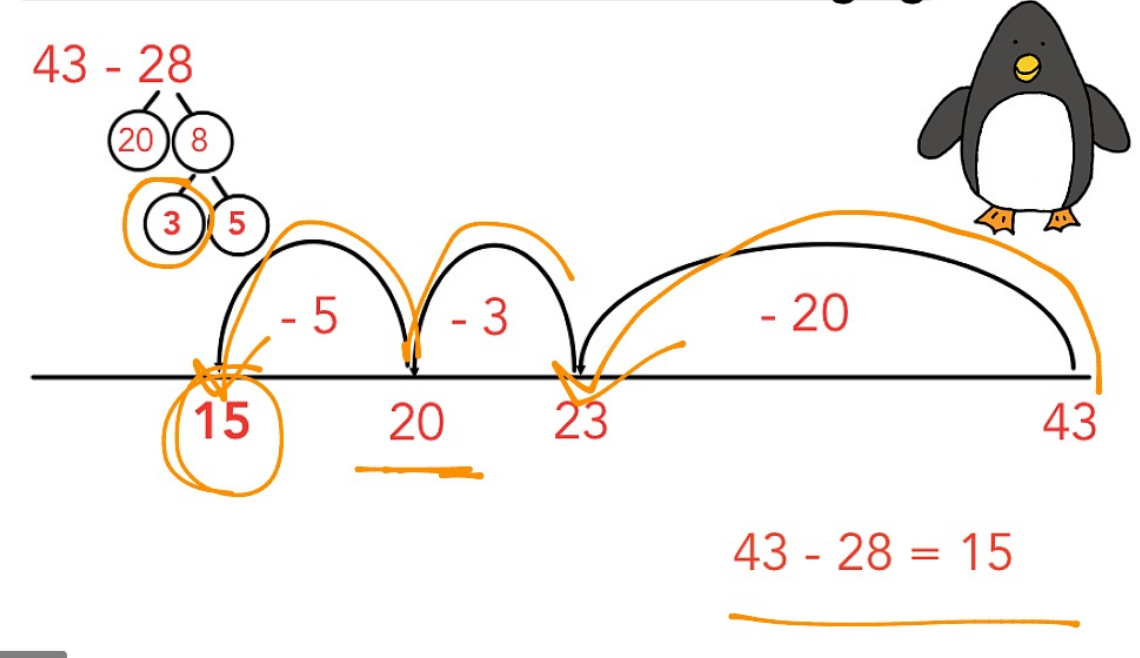
Subtract two 2-digit numbers (crossing tens) place value chart
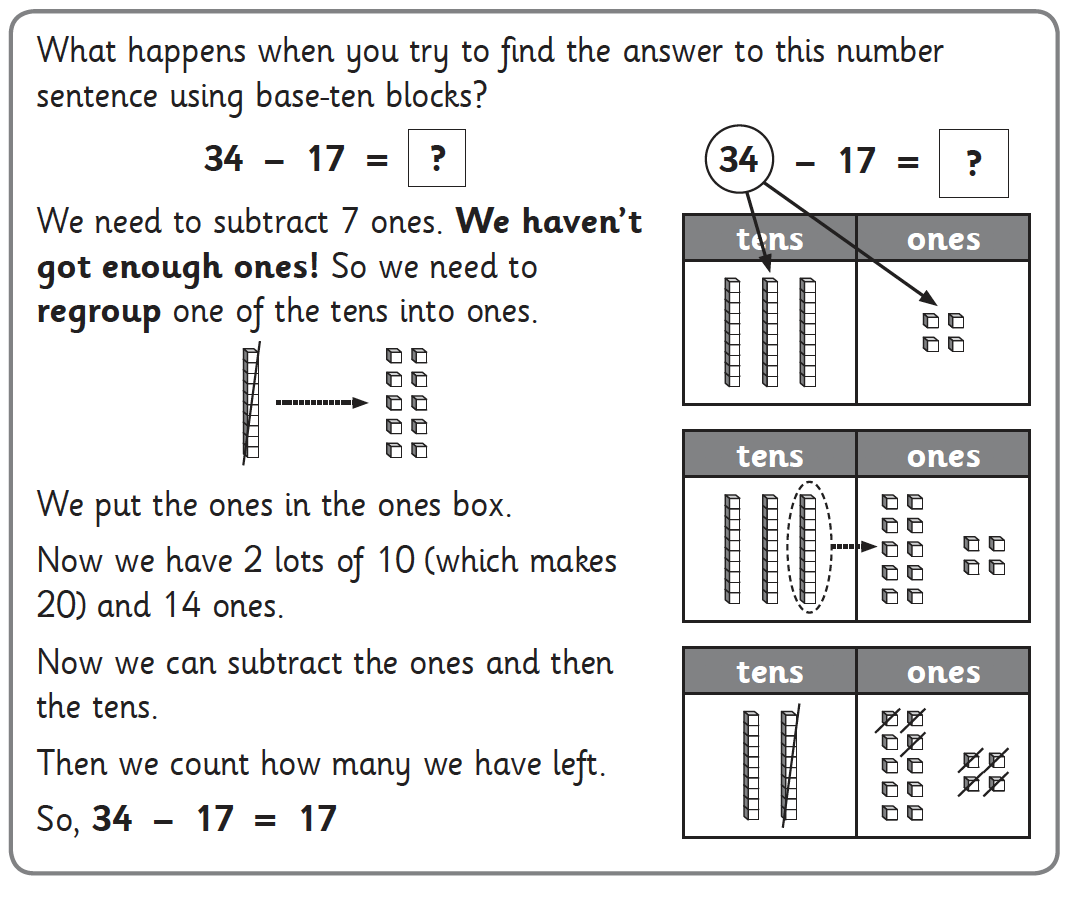
Number bonds t0 100
Children can use their knowledge of number bonds to 10 to help them with their number bonds to 100.
We will recap number bonds to 100 (multiples of 10) . Some examples include 40 +60 = 100/ 90 + 10 = 100
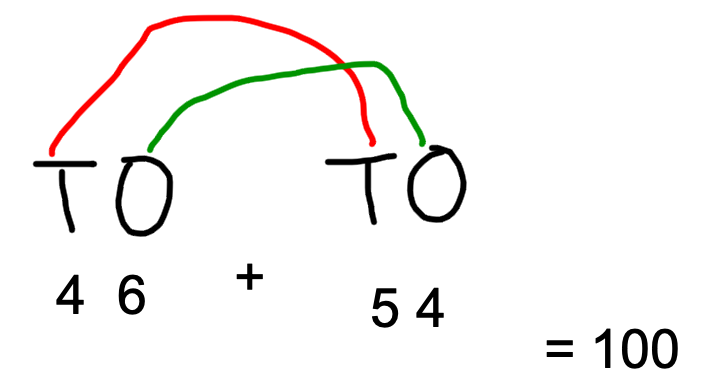
When thinking about number bonds to 100 ( not using multiples of 10) we can spot a pattern that can help us.
The tens need to add to 90 and the ones need to add up to 10. 90 + 10 = 100
73 + 27 = 100
70 + 20 = 90 and 3 + 7 = 10. 90 add 10 equals 100.
Add 3 1-digit number
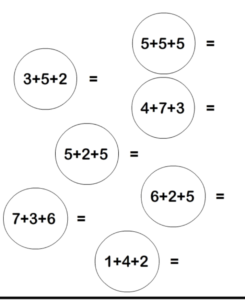
Religious Education
The focus this term will be different religions
Music
Children will explore sound body percussion.

PE
Our focus this term will be tennis and dance/exercise.
Geography
In Geography we are learning about continents and oceans. We are learning about continents first. Children will use atlases and maps to identify the different continents. We will think about the location of the different continents, key features of the continents and where it is in relation to other continents.
PSHE
We still use Zones of Regulation which we are hoping will help regulate feelings and emotions and offer the children the correct way to talk about their feelings.
We will continue to consolidate the school’s policy of Good to be Green and the 5C’s.
We will be introducing a new scheme of work for PHSE. We will be using a scheme of work provided by Jigsaw.
Primary PSHE scheme of work including statutory Relationships and Health Education (England)
Reading
When reading with your child at home ask them questions related to their book.
Questions to ask before you read
- Can you look at the pictures and predict what you think will happen in this book?
- What makes you think that?
- What characters do you think might be in our story?
- Do you think there will be a problem in this story? Why or why not?
- Does the topic/story relate to you or your family? How?
Questions to ask during the reading
- What do you think will happen next?
- What can you tell me about the story so far?
- Can you predict how the story will end?
- Why do you think the character did _______?
- What would you have done if you were the character?
- How would you have felt if you were the character? (use different characters)
- As I read____________, it made me picture________ in my head. What pictures do you see in your head?
- As you read, what are you wondering about?
- Can you put what you’ve just read in your own words?
Questions to ask after reading
- Can you remember the title?
- In your opinion, was it a good title for this book? Why or why not?
- Were your predictions about the story correct?
- If there was a problem, did it get solved?
- What happened because of the problem?
- Why do you think the author wrote this book?
- What is the most important point the author is trying to make in his writing?
- What was your favourite part of the story?
- If you could change one thing in the story, what would it be?
- Can you retell the story in order?
- If you were __________, how would you have felt?
- What is the most interesting situation in the story?
- Is there a character in the story like you? How are you alike?
Why did you like this book?
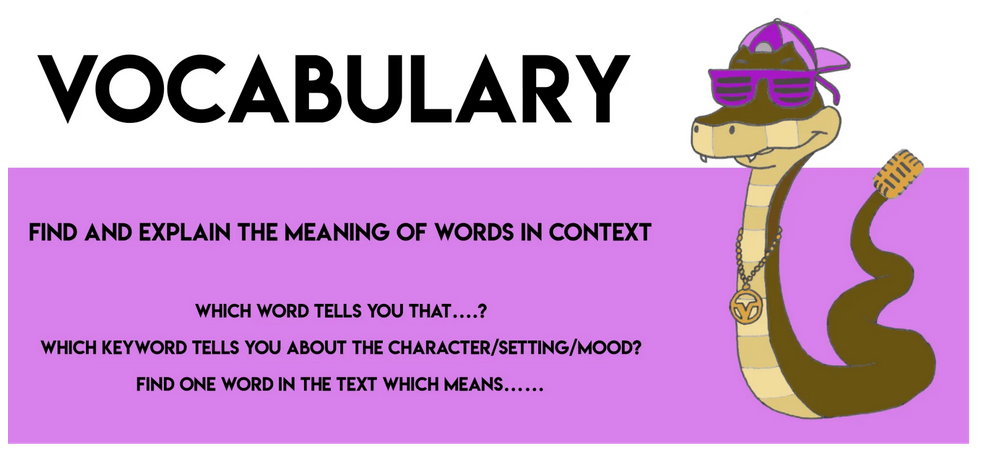
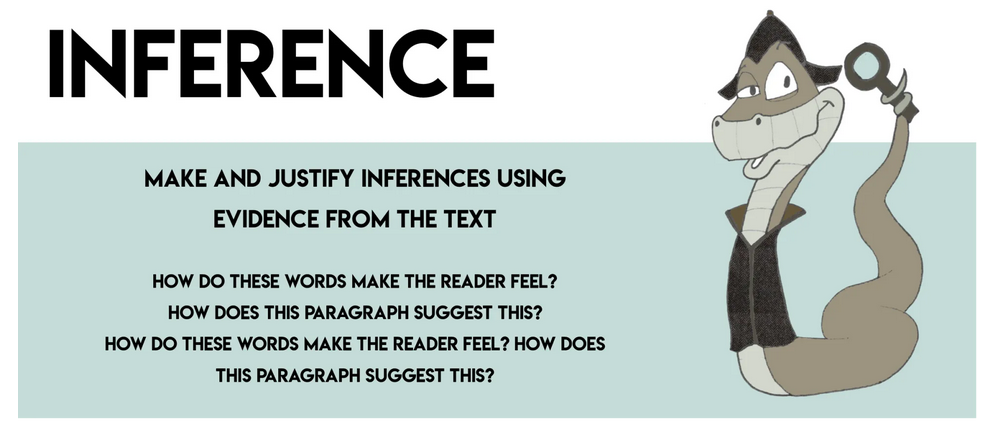
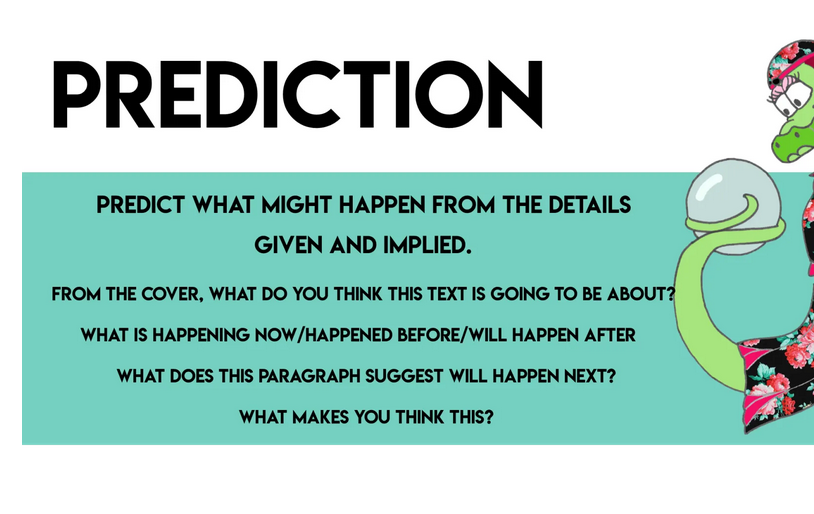
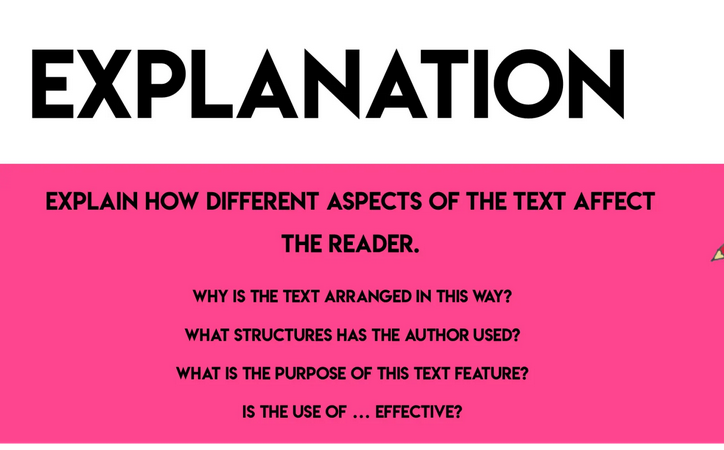
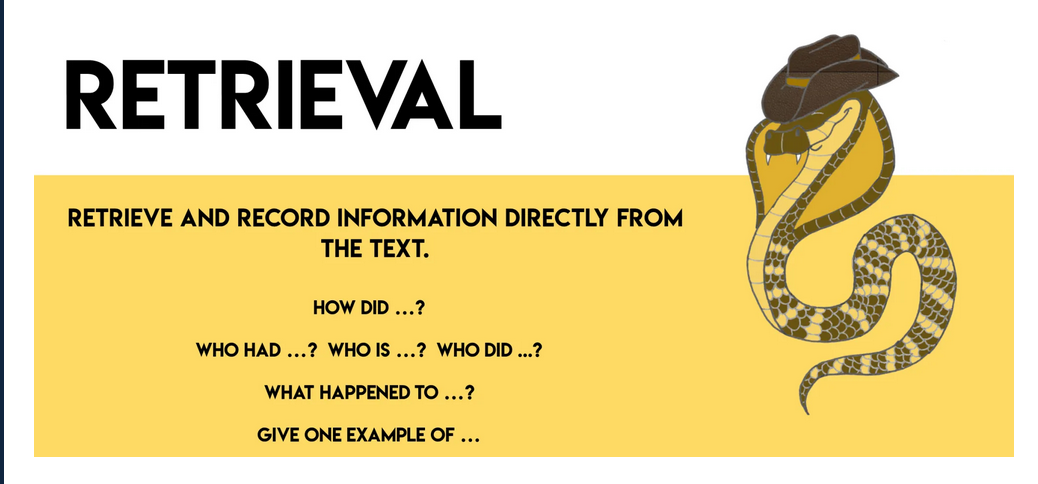
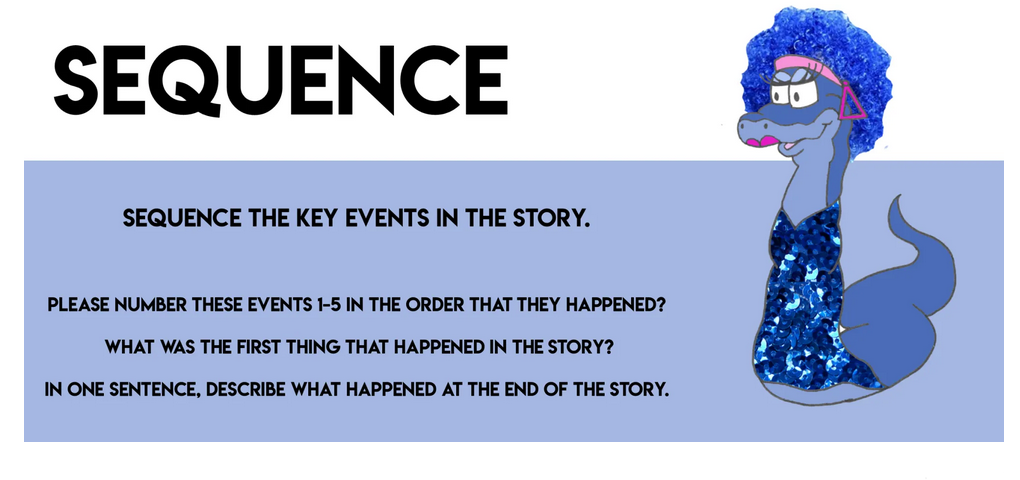
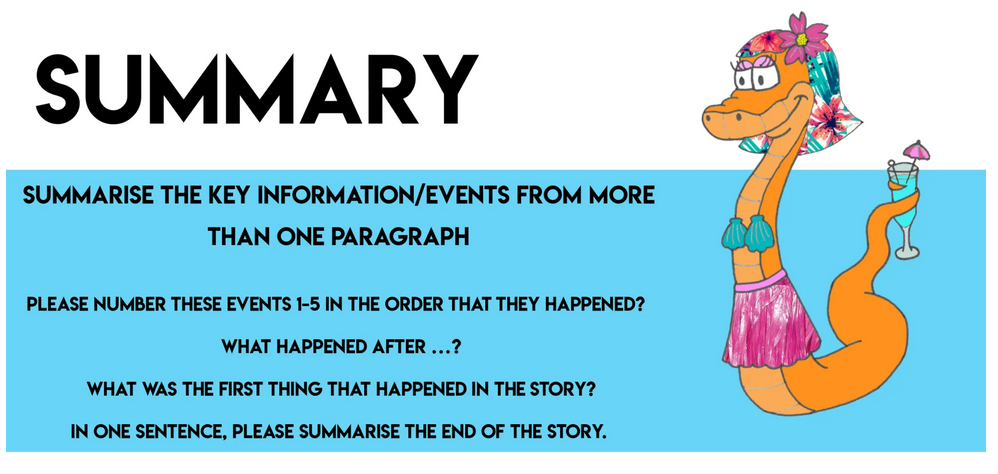
Mathletics
A big well done to all the children completing their Mathletics. We are so proud.
Gold

Silver

Aayush ( Hungerford)
Brady ( Westminster)
Bronze

Yigit Emre, Alesha, Harrison, Aayush, Afia and Elena ( Hungerford)
Tome, Emily, Aliyah, Priscilla and Yusef ( Westminster)

